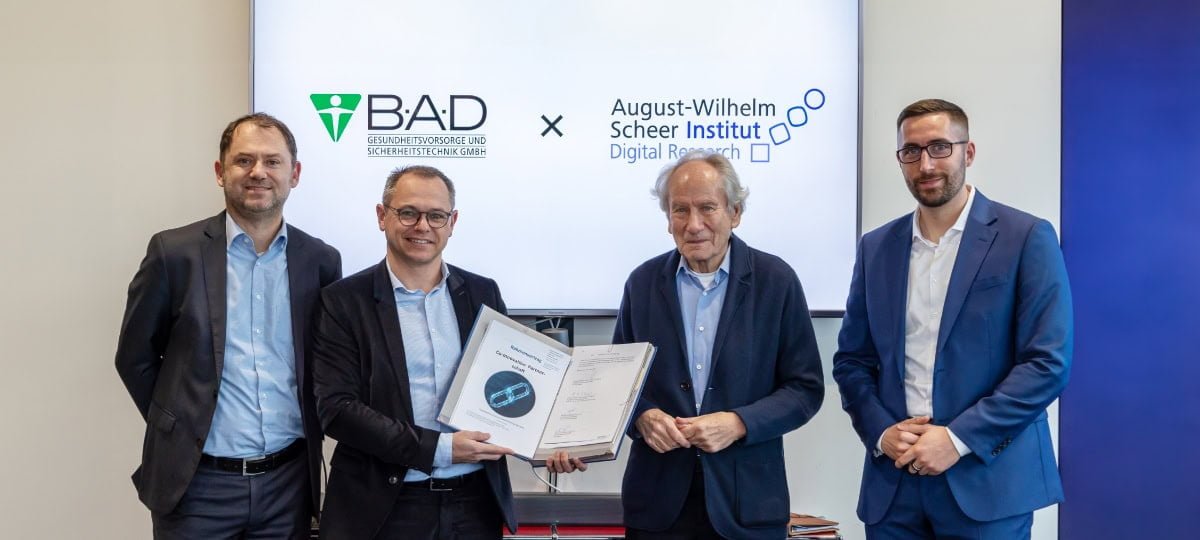Flexible processes and UI in the digital transformation


New technologies, but also social trends such as increasing individualization, are changing the demands on industries.
Social trends as an opportunity
New business models as well as agile start-ups are appearing and get to the heart of the changing user behavior of consumers. Companies must act flexibly and quickly with regard to these requirements in order to remain competitive.
An increasing speed of innovation, the flexibility of one's own processes and the adaptability of the technology used are necessary in order to still be relevant in tomorrow's market.
In terms of economical batch size 1 production, for example, it is crucial to mobilize processes and make them as lean as possible. Only in this way is efficient, individual production exactly according to customer requirements possible.
This only works with software that is designed for this high degree of flexibility and has good usability.
"Realizing mobile processes is now standard and the basic prerequisite for the digital transformation. Realizing mobile processes and the requirements of a responsive design simply, quickly and cost-effectively in order to meet the changes in the market and thus the needs of an increasingly fast-moving society - that is the challenge and the basic prerequisite for successful digital transformation".
explains Christian Kamuf, founder and co-managing director of Mobisys GmbH.
Mobile processes and value creation
In addition to the highest possible degree of flexibility, software for mobile processes ensures data currency in the system, better resource utilization and a greatly reduced error rate.
Optimizing the interplay between employee and machine and thus optimizing the resources used leads to a holistic, economical process design.
Through constant connectivity, for example, data is collected at the point of action with the least possible effort and processed directly in SAP in real time. The associated collection of large volumes of data in turn provides the basis for intelligent data management as well as analysis and conclusion. On the one hand, this enables a continuous improvement process and, on the other, creates the foundation for Industry 4.0 and IoT.
Data quality through smart software
The mobile solution used is decisive for the consistency and quality of the data. Important criteria in this context are response time, session management and SAP integration.
The software should enable the full potential of mobile devices to be exploited. The targeted connection of device features, such as integrated barcode scanners, GPS, camera and RFID modules, creates high data quality.
In addition, the connection of sensors, weighing systems and controls of any kind should be supported. By excluding incorrect entries and assigning specific access rights, intelligent user guidance and management leads to an optimal process flow.
Ultimately, intuitively designed interfaces additionally facilitate the generation of the required data on the part of the end users through good usability.
Obstacles on the way to the digital organization
According to the current "Skills for Digital Transformation" study by the Technical University of Munich, awareness of digitization and thus the importance of mobile technologies is at its current peak. 80 percent of DSAG members also see the topic of "suitable solutions for digitization" as very important or important.
Nevertheless, there is a great deal of reluctance to make the switch. Many companies seem to shy away from the complexity of the digital transformation. Often, however, challenges are also apparent within the company. Changes in the workplace are accepted only with great difficulty.
The study "The Digital Culture Challenge" by strategy consultancy Capgemini Consulting recently showed that more than 60 percent of the companies surveyed worldwide see the established value culture as one of the greatest difficulties in digital transformation.
One reason for this is the lack of a digital vision and an associated mobile strategy. In practical implementation, user acceptance and the rapid, uncomplicated introduction of innovations represent an enormous hurdle.
Intuitive UI
In order to promote the willingness to change in the company, the needs of IT and end users must therefore be clearly taken into account. Flexible and simple is also the requirement for UI, implementation and IT requirements in this context.
Approaches from the field of gamification place the fun factor at the center of an application for the user. An intuitively designed front end with responsive design and logically structured processes immediately makes the user's daily work easier. As a positive side effect, this results in savings in support and training costs.
Solutions for the mobile world
A solution that can be rolled out quickly and easily and requires minimal administrative effort from IT makes barriers disappear. But beware of applications built primarily for desktop use.
The development of mobile processes and the display of data on small screens in terms of high user acceptance often pose a great challenge. The implementation of a responsive design, for example, can be very complex and quickly becomes time-critical.
Alternatives developed specifically for the mobile world can be implemented much more quickly and run immediately on mobile devices. Cross-platform applications are recommended in order to be able to react to changing market requirements and changing technologies. Their use is independent of operating systems and device types and they therefore offer maximum freedom and investment security.
Customizable standard software
Mastering the balancing act between standardization and agility and thus being able to implement new ideas quickly is the goal for a successful digital transformation. In addition to the highest possible degree of flexibility, companies need a reliable tool that can be used safely for years to come. Only then is software meaningful and future-proof from a long-term perspective.
Standard products without modular add-ons often offer too little adaptability to market situations and do not sufficiently reflect the company's internal requirements.
The required flexibility should by no means take a back seat. Products that represent a standardized overall solution and yet can be adapted to companies, processes and market situations without major development effort are future-proof and promise a long life cycle.
At best, changes can be implemented quickly and easily by the customer's own IT. In terms of investment security, it can also make sense to choose software that can be used without middleware. In addition to saving time and money during implementation, further development and maintenance, such a lean infrastructure ensures high data quality.
The selected software should optimally support its users in the emerging challenges of digitization. Through simplicity and flexibility, it should be the basis for a company's speed of innovation and ability to change.





